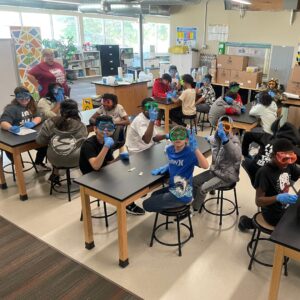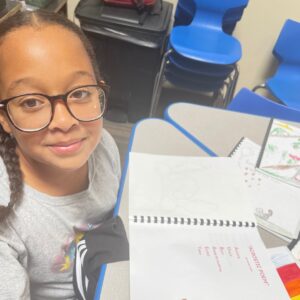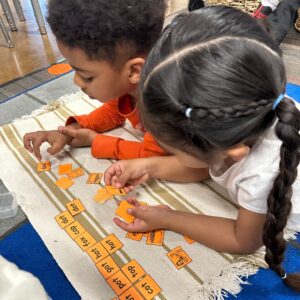 Through an inquiry-based approach to education, the students at iLEAD Lancaster “learn to learn” while facilitators take a learner-centered approach. Our primary goal is to help learners lead a successful and fulfilled life while contributing to the world around them.
Through an inquiry-based approach to education, the students at iLEAD Lancaster “learn to learn” while facilitators take a learner-centered approach. Our primary goal is to help learners lead a successful and fulfilled life while contributing to the world around them.
In classrooms where deeper learning is the focus, you find learners who are motivated and challenged — who look forward to their next assignment. They apply what they’ve learned in one subject to newly encountered situations in another. They can see how their classwork relates to real life. They gain indispensable knowledge, skills, and beliefs, including the following:
Mastery of Core Academic Content: Learners build their academic foundation in subjects like reading, writing, math, and science. They understand key principles and procedures, recall facts, use the correct language, and draw on their knowledge to complete new tasks.
 Critical Thinking and Problem-Solving: Learners think critically, analytically, and creatively. They know how to find, evaluate, and synthesize information to construct arguments. They can design their own solutions to complex problems.
Critical Thinking and Problem-Solving: Learners think critically, analytically, and creatively. They know how to find, evaluate, and synthesize information to construct arguments. They can design their own solutions to complex problems.
Collaboration: Collaborative learners work well in teams. They communicate and understand multiple points of view, and they know how to cooperate to achieve a shared goal.
Effective Communication: Learners communicate effectively in writing and in oral presentations. They structure information in meaningful ways, listen to and give feedback, and construct messages for particular audiences.
Self-Directed Learning: Learners develop an ability to direct their own learning. They set goals, monitor their own progress, and reflect on their own strengths and areas for improvement. They learn to see setbacks as opportunities to grow and adapt.
 A Growth Mind-set: Learners with a growth mind-set have a strong belief in themselves. They trust their own abilities and believe their hard work will pay off, so they persist to overcome obstacles. They also learn from and support one another. They see the relevance of their schoolwork to the real world and their own future success.
A Growth Mind-set: Learners with a growth mind-set have a strong belief in themselves. They trust their own abilities and believe their hard work will pay off, so they persist to overcome obstacles. They also learn from and support one another. They see the relevance of their schoolwork to the real world and their own future success.
When learners are developing knowledge, skills, and academic mind-sets simultaneously, they learn more efficiently. They acquire and retain more academic knowledge when they are engaged, confident their studies are important, and able to apply what they’re learning in complex and meaningful ways.
Mastery of academic content is critical to a learner’s future success in college, careers, and life, so it is the foundation of deeper learning classrooms.


